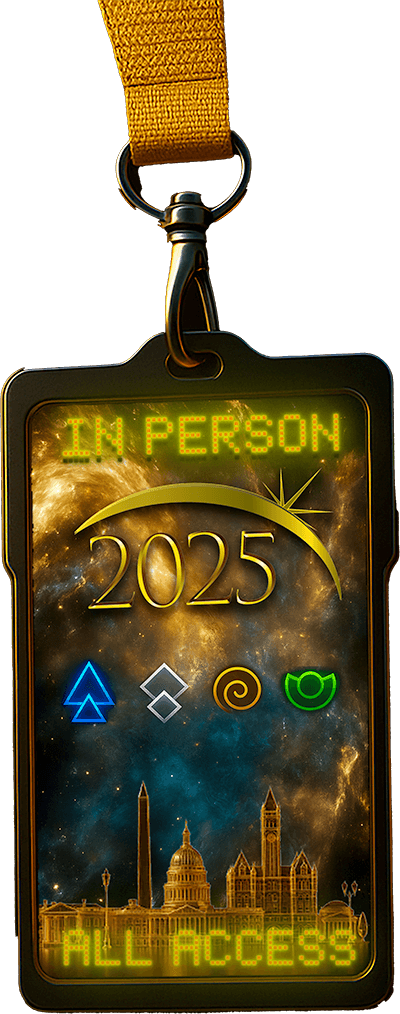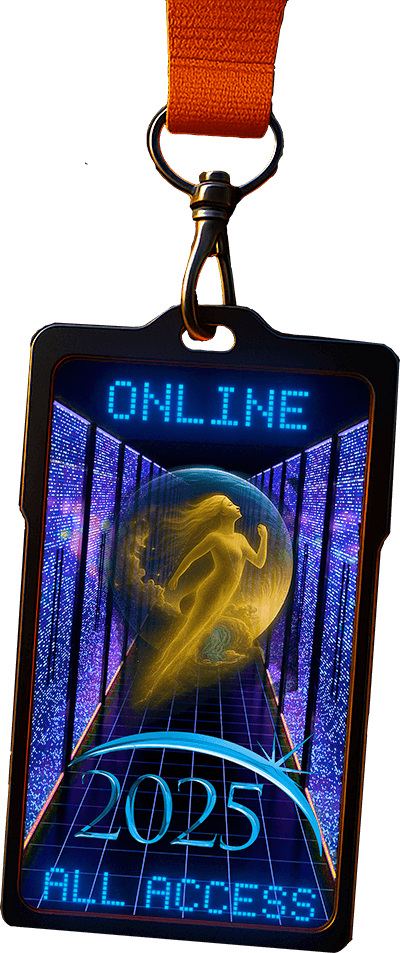Original State of the World Forum
Between 1995 – 2000, the State of the World Forum was convened by President Mikhail Gorbachev and a global pantheon of co-chairs, including Secretary of State James Baker, Indian National Congress President Sonia Gandhi, primatologist Jane Goodall, Nobel Laureate Wangari Matthai, South African President Thabo Mbeke, First Lady Jehan Sadat, activist Vandana Shiva, Secretary of State George Shultz, Nobel Laureate Joseph Stiglitz, UN Under Secretary Maurice Strong, CNN founder Ted Turner, Archbishop Desmund Tutu, Nobel Laureate Elie Wiesel and Grameen Bank founder Muhammed Yunus. Senator Alan Cranston served as Chairman of the Board, Dr. Jim Garrison served as President.
The mission of the Forum was to discern the “state of the world” at the end of the Cold War and what possibilities there might be for peace in the emerging world order. The Forum distinguished itself as a global brain trust and became one of the most influential conferences of its era, challenging participants to “transform conversations that matter into actions that make a difference.”
Each Fall from 1995 -1999, a five day Forum was convened at the Fairmont Hotel in San Francisco, culminating at the New York Hilton in September 2000 to coincide with the UN Millennium Summit of Heads of State. Roughly 1,000 people gathered for each Forum, 3,500 for New York, representing a broad range of individuals drawn from sectors as diverse as the new sciences to citizen activism, geo-politics to innovative finance, the nuclear weapons threat to regenerative agriculture, and a host of other issues. It was an extraordinary gathering of Nobel laureates, statespeople, indigenous elders, intellectuals, citizen activists, business executives, scientists, politicians, philosophers, spiritual icons, youth leaders and all manner of creative intelligences from around the world that had a powerful transformational impact. Special sessions were broadcast live via CNN and BBC.
The State of the World Forum left a lasting imprint on global discourse. The Forum helped mainstream the idea of holistic global problem-solving – addressing political, economic, environmental, social, and spiritual challenges in an integrated way. Many of the themes championed at the Forum such as sustainable development, climate action, nuclear disarmament, interfaith dialogue, digital divide concerns, etc. gained momentum on the world stage in the late 1990s and early 2000s and were eventually reflected in U.N. agendas and civil society campaigns.
Discussions during the first Forum introduced provocative ideas such as the “20-80 society” – predicting a future where only 20% of the workforce might drive the economy while innovative solutions would be needed to support the rest. The Forum’s emphasis on a “global ethic” and shared values contributed to initiatives like the Earth Charter, launched in 2000 by Maurice Strong and Stephen Rockefeller, among others, and the broader conversations on aligning globalization with the planetary ecology and human flourishing. Participants often carried insights and partnerships from the Forum into their home countries and organizations.
The State of the World Forum was dedicated to “transforming conversations that matter into actions that make a difference.” This generated many concrete outcomes called strategic initiatives. These included the Global Security Institute with Gorbachev, Senator Cranston, Rajiv Gandhi Foundation and Jonathan Granoff advocating nuclear weapons abolition, a Whole Child Initiative with Jane Goodall and Claire Ryle Garrison focusing on children’s well-being, Global Equal Access with SalesForce.com founder Marc Benioff expanding information access, the Coexistence Initiative with author Bill Ury and philanthropist Alan Slifka advancing intergroup harmony, Ethical Globalization Initiative with Irish President Mary Robinson promoting human rights in development, legislation in the EU Parliament limiting Endocrine Disrupting Chemicals with Euro MP Tom Spencer, and an Emerging Leaders program mentoring young leaders from around the world. Networking at the Forum helped inspire youth-oriented conferences such as a Global Peace Forum for young leaders.
To further these strategic initiatives, the Forum convened conferences in Beijing, Belfast, Belo Horizonte, Brussels, Islamabad, London, Mexico City, Moscow, New Delhi and Washington, DC.
The Forum’s ability to assemble a diverse mix of world leaders, experts and change-makers cemented its global reputation. This convergence of perspectives from politics, business, academia, science, culture and the spiritual realm made the Forum a catalyst for groundbreaking initiatives in international policy, sustainable development, and ethical globalization.
State of the World Forum 2.0
Omni Shoreham hotel, Washington, DC Dec 14-18
The years 2025 – 2030 represent another equally precarious and potentiated moment. In a fundamental sense, the world since the original Forum is getting “better and better, worse and worse, faster and faster.” There are certainly many indicators that breakthroughs and positive developments are taking place in specific areas. Yet it seems apparent to most observers that the “worse and worse” aspects are gaining momentum such that humanity now teeters precariously on the brink of self destruction.
The State of the World Forum 2.0 is thus emerging at a moment when many are urgently asking deeper questions — about the future of our species, the structures that guide us, the values we want to carry forward. We are no longer in a world where it is sufficient to react to crises. We are entering a world requiring clarity, care and collective intelligence to discern the opportunities inherent in the crises. We will only succumb to self destruction if we do not nurture the opportunities in the very crises poised to destroy us.
Our purpose with the new Forum is to bring together individuals who are thinking systemically, acting responsibly and sensing that the future will require something more integrative than anything we’ve built before. We will convene people who are deeply attuned to change — leaders, youth, indigenous elders, scientists, spiritual practitioners, policymakers and innovators — not just to share ideas but to create coherence across worldviews and disciplines.
At the heart of this Forum is a recognition that multiple forms of intelligence are shaping our moment: the deep intelligence of nature, the emergent intelligence of artificial systems, the vast unknowns of cosmic intelligence. Rather than approaching these intelligences in isolation, we aim to explore how they interconnect and interact — and what kind of human maturity is needed to engage with them wisely.
This gathering is designed as a space where thinking is matched with listening, where strategic frameworks sit alongside meaningful questions, where we hold space for complexity without rushing toward conclusions. It is designed to be both structured and spacious — grounded in a commitment to real outcomes yet open enough to allow what we cannot yet fully see.
Beyond the 2025 convening, the Forum is designed to serve as a platform for longer-term collaboration. It will support cross-sector strategic initiatives, emerging research, shared ethical frameworks and the building of a permanent center for planetary intelligence. We are not starting from scratch — we are drawing on decades of learning, networks of trust and traditions that carry insight forward.
The work ahead for humanity at this extraordinary inflection moment must be thoughtful, intentional, and done with humility. We invite those who are ready to contribute not only their expertise but their presence. Not because they have all the answers but because they are willing to help ask deeper questions — together.








.png)
.png)
.png)


